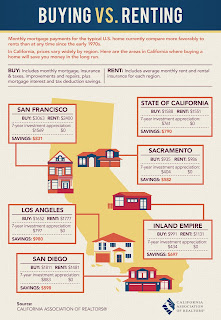 |
| Entryway to Condo Building |
But those restrictions are no longer allowed, even if the HOA documents still contain the language. Beginning January 1, 2021, a bill signed into California law an Assembly Bill which became Civil Code 4741, an amended version of Civil Code 4741 came into effect January 1, 2022.
Important facts:
1. As of July 1, 2022, Civil Code section 4741 provides that associations cannot have restrictions in their governing documents, or make amendments to the governing documents, that prohibit or unreasonably restrict “the rental or leasing of any of the separate interests, accessory dwelling units (ADUs), or junior accessory dwelling units (JADUs) in the HOA to a renter, lessee or tenant.”
2. Restrictions capping the number of rentals to less than 25% are no longer permitted. However,,,,, rental caps can be higher, such as 25%, 30%, etc.
3. Condos and HOAs can still ban short-term rentals and stop unruly parties from impacting the community. Short term rentals less than 30 days are not allowed, however, owners can now create valid rental agreements lasting 31 days or longer. They are not required to rent out units for a minimum of six months or one year.
4. The restriction requiring an owner to own or reside in a unit for a minimum time before renting is no longer enforceable under Civil Code section 4741.5. Finally, the new law does not change the right of an owner who was already renting out their unit before the new law to continue renting or leasing their unit.
So, an HOA consisting of 35 units, the required rental minimum is (8.75, or) 9 units, or 25% minimum allowed rentals, if there are at least that number of owners wishing to rent their units.
While this new law was controversial for a few reasons, it nevertheless was signed into law, and accordingly, "A common interest development that willfully violates this section shall be liable to the applicant or other party for actual damages, and shall pay a civil penalty to the applicant or other party in an amount not to exceed one thousand dollars ($1,000)."
An HOA member wanting to know more about these requirements is advised to consult a legal professonial. More information can be found online at a number of legal sites, including this one about rent restrictions.
If you would like information about selling your unit, or buying into an HOA, please contact me for a list of required disclosures when selling a condominium.
Julia Huntsman, REALTOR, Broker | http://www.abodes.realestate | 562-896-2609 | California Lic. #01188996


















